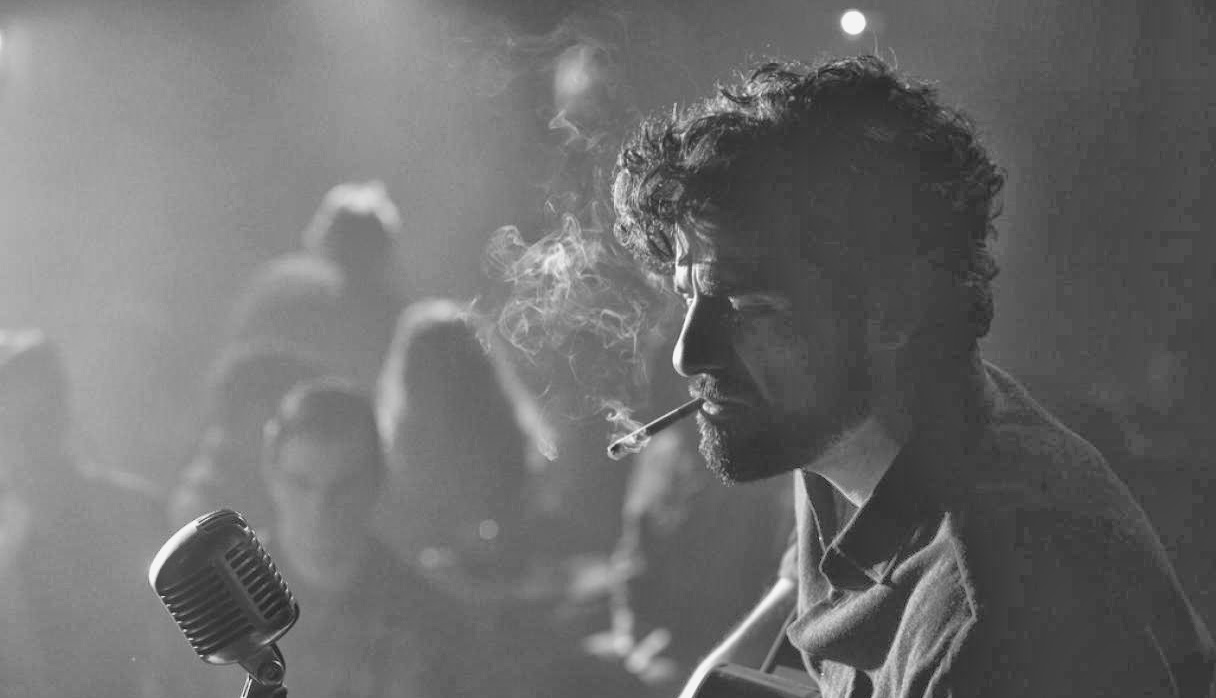A bare microphone in a dimly-lit nightclub gives way to a young, curly-haired folk singer named Llewyn Davis sitting mournfully on a stool. Strumming his guitar, and looking quite rumpled, he belts out a soulful song, the first plaintive line of which is, “Hang me, oh hang me, I’ll be dead and gone.”
It’s 1961 and Davis (Oscar Isaac), an itinerant musician striving for recognition and success, is performing at the Gaslight Cafe in Greenwich Village. He sings beautifully and his lyrics tug at the heartstrings. But can he rise above his competitors, some of whom are quite good, and create a niche for himself in a cutthroat business?
That’s the overarching question in Joel and Ethan Coen’s latest movie, Inside Llewyn Davis, now playing in Toronto.

Davis — the central character in this stark, melancholy and occasionally humorous film that nostalgically evokes the pre-Bob Dylan Greenwich Village music scene — lives from hand to mouth. He’s homeless, crashing friends’ homes for days at a time, and he’s so broke that he can’t even afford a winter coat. He’s released an album, Inside Llewyn Davis, but royalties are not exactly pouring in, forcing him to troll for loans at practically every turn.
By trade, he’s a merchant marine sailor, but his heart is in music. He can’t earn a living as a folk singer, and although it’s a cold, hard world out there, he’s determined to exhaust every possibility. Davis accepts every minor gig he’s offered, hoping he can translate it into something big and break into stardom.
The film, however, is not just about the pursuit of success. It`s also about the unpredictability of interpersonal relations.
Davis` friends and fellow entertainers, Jean (Carey Mulligan) and Jim (Justin Timberlake), offer him a place to stay when he`s down on his luck, but he repays the hospitality by impregnating Jean. Having grown disillusioned and angry with Davis, Jean dismisses him as an “asshole” and a “loser.” He hits back, belittling her bourgeois ambition to live in the suburbs and, in the ultimate insult, calls her as a “careerist.”

Davis’ relationship with his married sister is just as problematic. No sooner has he cadged a meal from her than they are arguing.
On the simplest level, Davis is a screwup, a failure writ large. In an early scene, he leaves a door ajar for a second too long, letting an orange cat out of an apartment. He finally finds the cat, but has to take care of the frisky creature until he can be returned to its fretful owner.
Davis is a quintessential Coen character, unconventional and quirky, with a short-burning fuse. Try as he might, he constantly runs into brick walls and upends himself. In short, he’s something of a schielmiel.
On a misbegotten road trip to Chicago, in a scene in which Coen regular John Goodman appears as a corpulent and strange early music specialist, Davis is momentarily left high and dry when the driver of the car is mysteriously hauled away by a police officer in the dead of night.
Once in wintry Chicago, Davis lands an audition, but his song leaves a jaded promoter (F. Murray Abraham) decidedly unimpressed. “There`s no money here,” he says, deflating Davis’ ego.
Davis, in essence, is a tragic figure. He’s a talented trouper who can write original lyrics and sing them like a professional, but can he connect with his audience on a visceral emotional level? Can he convince them that he is giving them the gift of something vitally fresh and new?
Isaac is totally convincing as an artist who’s dedicated, body and soul, to his craft, and he sings like an angel. Mulligan pulls off a rare feat. She`s frumpy yet sensual. Timberlake, as usual, is supremely composed and pleasant company.
Contrary to rumour, Inside Llewyn Davis is not the Coen brothers’ best film. But it’s bright, effervescent and musically intoxicating.
